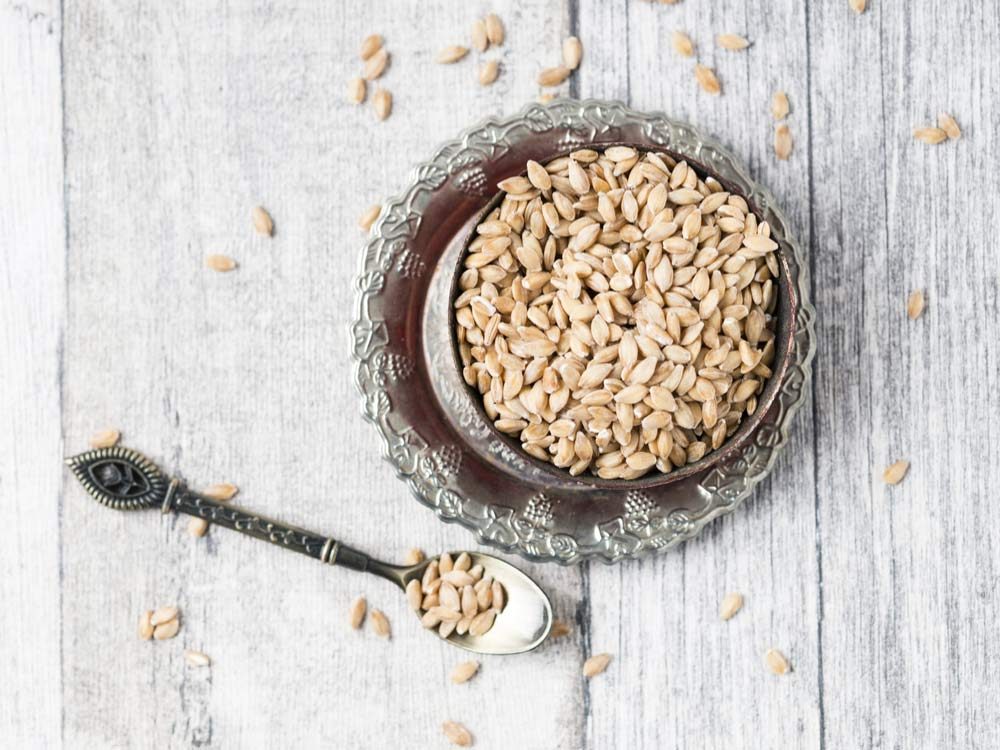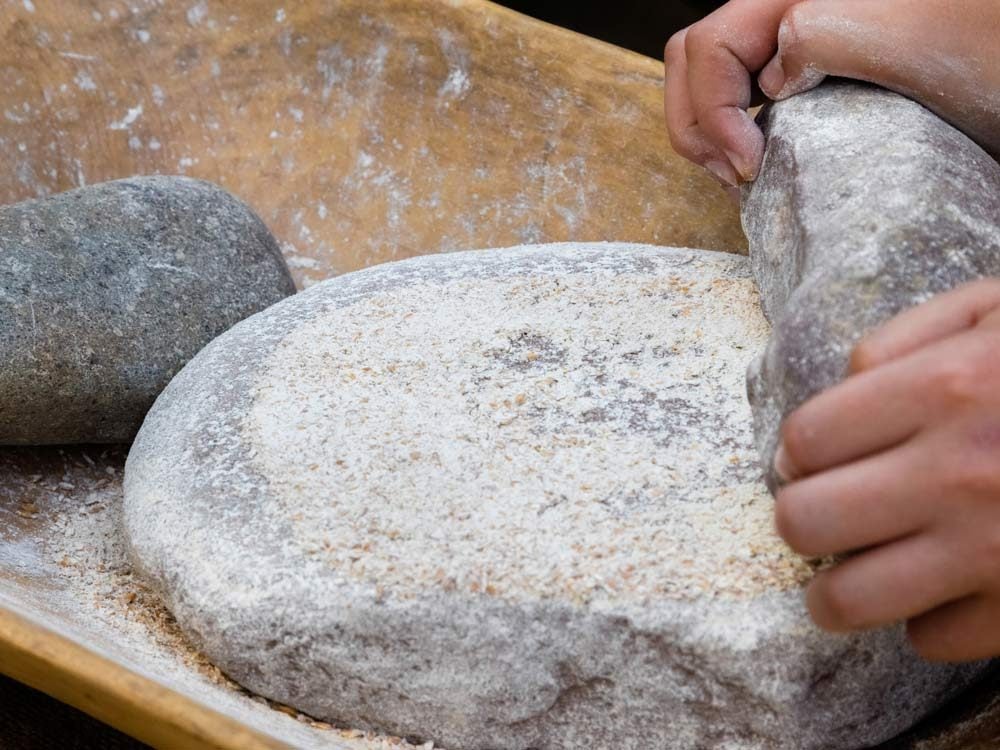
The ancient grain einkorn is the next big superfood
All ancient grains have health benefits, but einkorn, the eldest of the ancient grains, might just be the best-kept secret among them.
Unlike quinoa, amaranth, and farro, which are all abuzz in the health food world, nobody’s talking about another ancestral wheat, einkorn—but they should be. That’s because it’s basically the next superfood superstar. Besides being higher in protein and fibre, and lower in starch, than regular wheat, einkorn’s chromosomal make-up is also different in a way that makes it safe for most people with a non-celiac disease gluten sensitivity. The gluten in einkorn lacks the type of proteins found in the gluten of regular, modernized wheat that people with a gluten sensitivity can’t digest, making it a natural gluten-sensitive grain alternative. (Try this gluten-free chickpea and chocolate cake.)
You can find einkorn flour and other products online if you search hard enough, but family-owned Jovial Foods, Inc. is pretty much the king of the einkorn scene. That’s probably because it not only makes great products—pasta, flour, crackers, you name it—that taste good, its founders have a very personal connection and journey with the grain.
Carla Bartolucci and her husband, Rodolfo, were both professionals in the organic food industry when their then-two-year-old daughter started feeling sick and exhibiting strange symptoms. But it wasn’t until they moved to Rodolfo’s native Italy when their little one was seven that she got significantly worse. She had frequent colds, tonsillitis, snored at night, got crippling headaches, rashes, stomachaches, and mood swings. “I knew there was something very wrong with her but we couldn’t figure out what it was,” says Bartolucci. “Then I realized that after the move to Italy, she was eating lots more bread and pasta.”
Bartolucci began to suspect that her daughter may be sensitive to gluten but was reluctant to feed her still-growing body gluten-free products that often have not-so-healthy ingredients or additives. “Gluten-free isn’t always the healthiest alternative, so my husband called an Italian research association that told him to try einkorn,” she says. After more research, the couple discovered that while this was the oldest of the ancient grains, its wild supply had remained virtually untouched; it wasn’t extinct, and yet nobody was doing much with it. By a stroke of luck, the Bartoluccis found another Italian researcher who gave them einkorn seeds he happened to have on hand for experiments; the Bartoluccis found a local farmer who agreed to start growing their own personal crop of it.

The family then started using einkorn in place of regular wheat—you can bake with its flour form or cook up its “berries” like rice—and their daughter’s symptoms started retreating. “Her hair grew back and, after a full year, she told me she felt so, so good. She was totally better,” says Bartolucci.
The couple ramped up production and in 2010, Jovial started selling einkorn products. Since you can’t just swap einkorn flour for regular flour because it behaves a bit differently, Bartolluci wrote a cookbook to help people easily incorporate it into their diets. “People with celiac disease can’t eat it because it technically does contain gluten, but non-celiac disease gluten sensitivity is so common, and I wanted to share this with the world to help other people suffering just like my daughter was,” Bartolucci says.
Now Jovial sells gluten-free products that are more natural than some others on the market, and they’ve ventured into the world of glass bottled beans and tomatoes. “We wanted to reinvent gluten-free products and provide natural, healthy foods without worrying about BPA or other harmful substances sometimes found in aluminum cans or plastic containers,” she says. All the foods are grown in Italy and distributed in Connecticut.
And in case you’d like to check it out for yourself, Jovial hosts culinary getaways at an 18th century villa just outside the city of Lucca in Italy’s Tuscany region that are part cooking, education and relaxation.